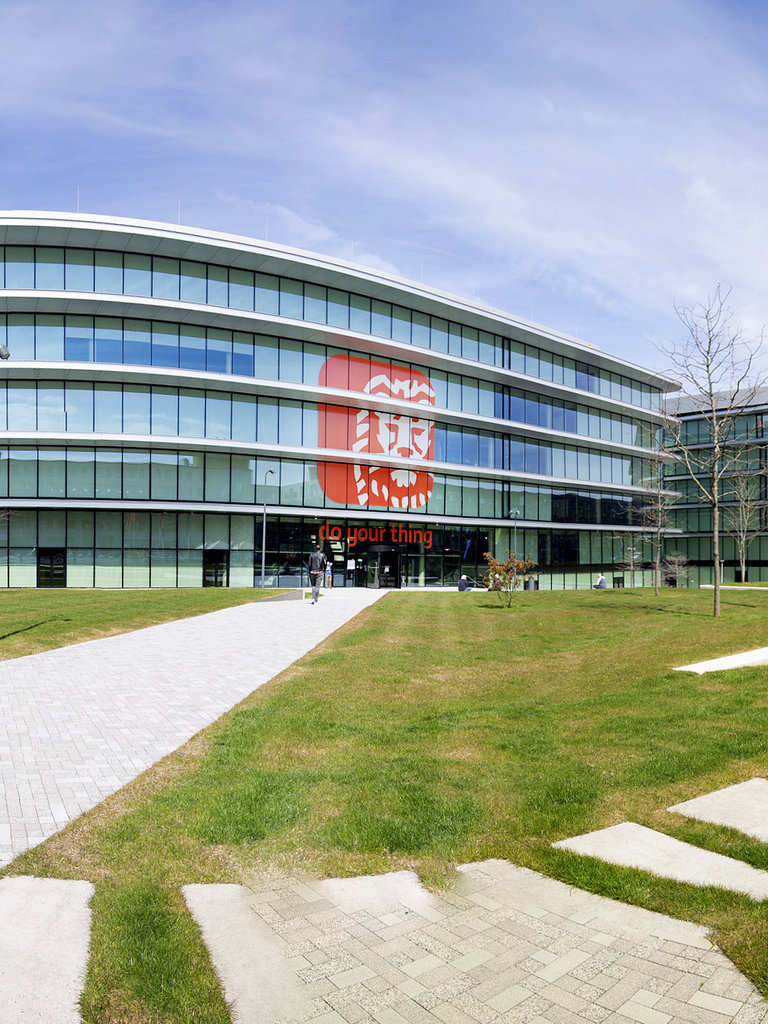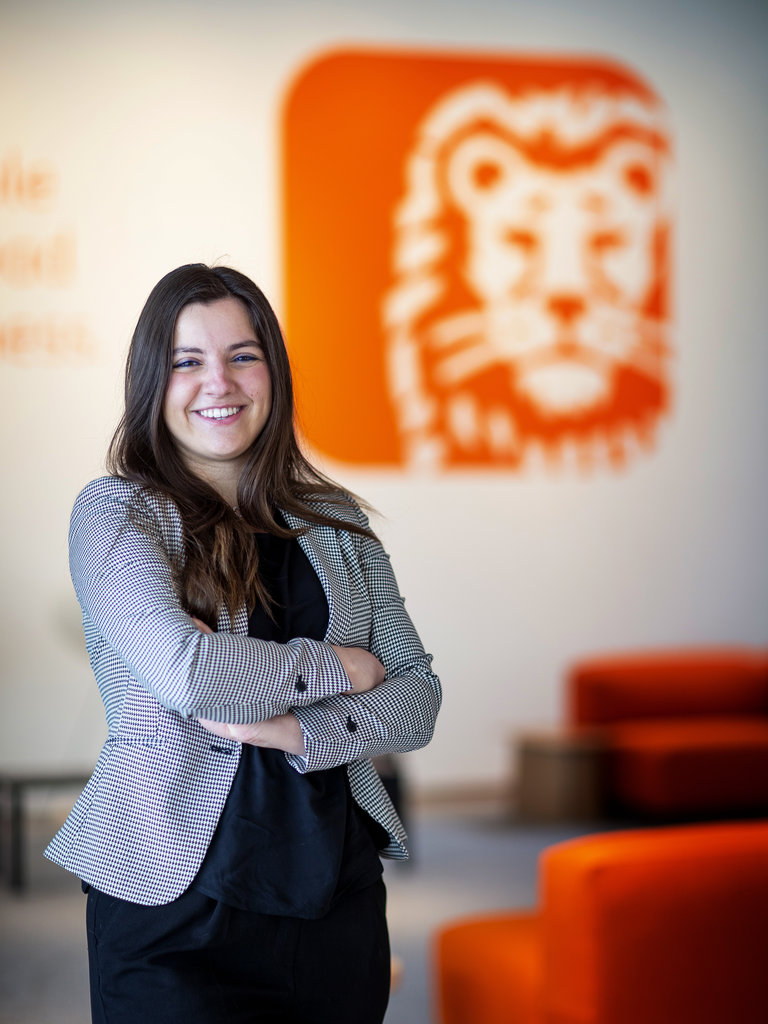
AI is key to ING's digital strategy
By Jochen Meischke
2020 saw the launch of a special project by ING and TU Delft: the AI for Fintech Research Lab. This marks a new chapter and further intensification of the collaborative relationship the two organisations, who previously worked together on software development in the ING Tech Research & Development department. Elvan Kula, who works for ING and is the manager of the new lab, tells us about the role AI will play in the bank's core tasks and how TU Delft and ING are collaborating to implement innovation in the fintech sector.
It is ING's ambition to be a “tech company with a banking licence”. It's no wonder the bank approached TU Delft to jointly investigate the possibilities for the broader application of AI. The lab, which operates under the ICAI flag, was set up in the same year Kula graduated at TU Delft in Data Science and Technology and then went to work for the bank. Given Kula's interest in AI, it was not surprising that the new lab appealed to her.
Kula secured one of the ten PhD spots and became lab manager six months after its launch. The job is challenging and the environment inspirational, she explained. “In every ICAI lab there is collaboration between one or more companies and a university, thus bringing academic knowledge and real data – insights from practice – together. For ING, it is very valuable to validate research in this way with TU Delft as its scientific partner.”

Forecasting delays is a form of data analysis. AI can help us predict the likelihood of meeting a deadline for developing new software
Elvan Kula, Manager Ai for Fintech Research, ING
Forecasting delays, incidents and interactions
Within the lab, Kula focuses on three topics: recognising and predicting incidents, predicting delays, and the further development of chatbots. She laughs: most people have an idea what a chatbot is, but she thinks her other fields of interest are a little more out of the ordinary. She explains: “Forecasting delays is a form of data analysis. AI can help us predict the likelihood of meeting a deadline for developing new software, for example. For ING it is important to know when, for example, new functionality on the website or app can be launched. The sooner we know whether a delay is likely, the better we can take anticipatory measures. Our current model already predicts delays with 80 per cent accuracy, as well as how long any delays to a project may last.
Another important topic within financial services is recognising and predicting incidents. Kula: “At ING alone, more than 50 million transactions take place per day. We are now building AI that can independently recognise whether there's anything irregular about a transaction, such as money laundering or other forms of financial or economic crime. At the moment, we primarily look at anomalies (as they are called), non-standard transactions. The next step is the alarm function: our AI lets ING's staff know that it has noticed something irregular among the millions of transactions.”
Chatbots, too, hold a lot of promise, says Kula. “The current generations of chatbots are still relatively simple. They can be improved, for example, to be able to classify reasons for customer contact: predicting why and about what a customer would seek contact. Say, for example, that a customer's account has been blocked. If the customer then contacts you, you will have a reasonable idea what their question will be about if they have already been informed about this by the chatbot.”
More reliable prediction with AI
At present, Kula's work focuses on predicting delays, which she does with the help of enormous amounts of data from ING. “ING introduced agile working in 2011, and since 2015 almost all of their teams work in this fashion, in which self-organising teams chop large projects into shorter periods in order to be able to deliver something useful sooner. Thanks to the data this yields, you can really get to work on the technical and social aspects of software development. Humans are quite bad at judging what it is that leads to delays. AI is much better at this, because it uses years’ worth of data. One of the first insights emanating from this research is on the subject of what are known as 'rapid releases’: companies would like to develop software more quickly and release it early in the form of new apps, website or other financial services. The question is whether increased speed compromises the quality of the software and the service. Our research shows that this is a concern for many software developers, but AI detected no proof of a correlation between poorer quality and shorter projects."
Living Lab for innovation
There are two ICAI lab locations, one in Delft and one in Amsterdam. Each of these is actually a kind of living lab in which ING and TU Delft get together, says Kula. “Within our lab, researchers, students and employees of the bank and of the -university apply state-of-the art academic knowledge to ING’s existing knowledge and processes. The question really is: how can we, together, use the latest academic insights in real-world applications? The lab also gives birth to new concepts that have not previously been researched. If someone from TU Delft or ING has a good idea, we are in a position to elaborate and further test it here first.” It is important to be diligent when working with (customer) data and ING sees great importance in doing so in close collaboration with TU Delft. Kula mentions the solid reputation of the university: “TU Delft really looks at the practical applications of AI. That makes the collaboration valuable for ING. It is also one of the reasons why ING is looking into developing the AI for Fintech Research Lab into a fully-fledged department of the company.”
ING has been using AI as the key to its fintech strategy for quite a while and the ICAI lab is part of this. Kula: “In the first year we worked hard at building awareness of what we do within ING. More and more departments are approaching us now to help address any complex challenges and problems they have, which was not the case this time last year. Of course, we can dream up all kinds of innovations, but it’s when colleagues within ING contribute input that we can make a real difference as lab.”